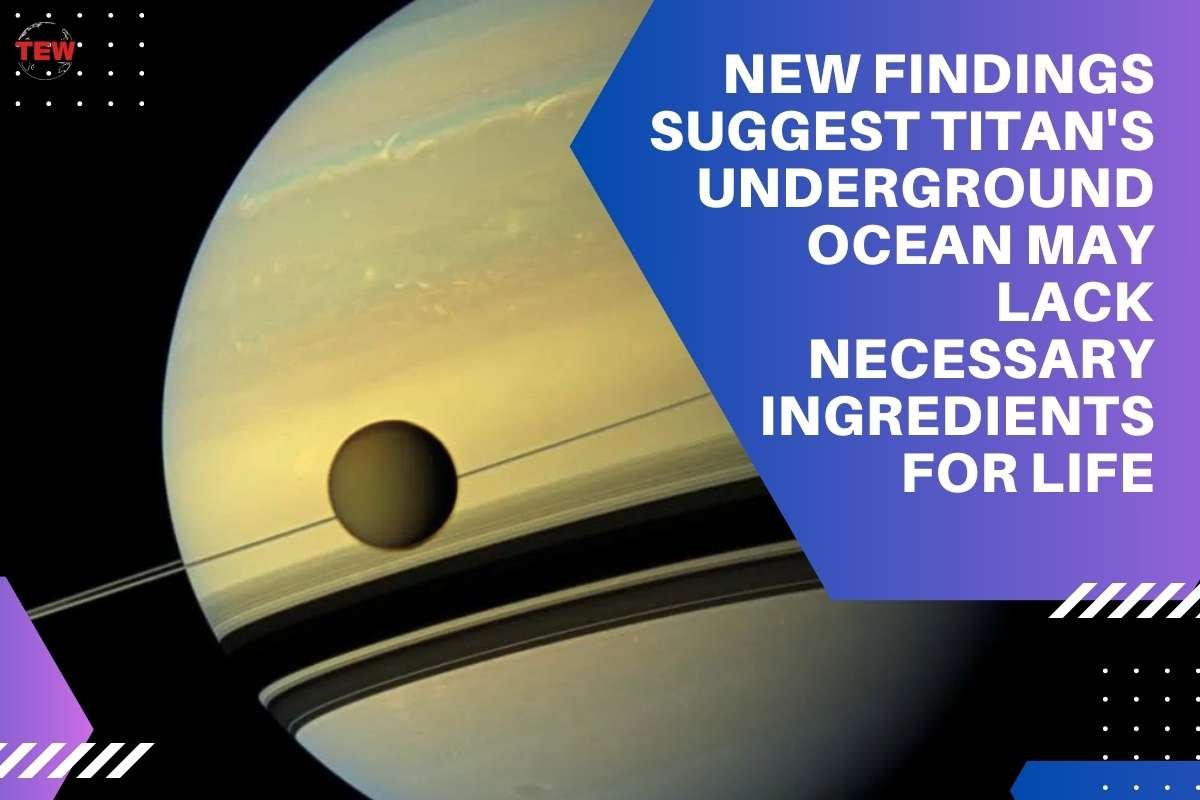Recent astrobiological research has cast doubt on the potential habitability of Titan’s underground ocean, as well as similar oceans within icy moons scattered throughout the outer reaches of our solar system. Despite the abundance of organic molecules on Titan’s surface, crucial for life as we understand it, the extreme cold of this moon presents significant challenges for sustaining life processes.
Titan, renowned as Saturn’s largest moon and the second-largest moon in our solar system, boasts a unique atmosphere laden with petrochemical smog and a plethora of organic compounds. Yet, beneath its icy exterior lies an extensive underground ocean, estimated to hold a volume approximately twelve times that of Earth’s oceans combined. This ocean, along with similar ones within moons such as Enceladus, Europa, and Ganymede, raises tantalizing questions about the potential for extraterrestrial life forms. However, new findings suggest that the conditions within these subterranean seas may not be as conducive to life as previously thought.
The influx of organics falls far short
Catherine Neish, a planetary scientist from Western University in Ontario, Canada, led an international research team that delved into the habitability prospects of Titan’s ocean and its counterparts. Their study challenges the conventional assumption that these underground oceans could harbor life. The crux of their argument lies in the accessibility of organic molecules from the moon’s surface to its ocean depths, a critical factor in facilitating prebiotic chemistry necessary for life’s emergence.
The prevailing theory posits that comet impacts on Titan’s surface could melt ice, creating pools of liquid water infused with organic compounds. As liquid water is denser than ice, it would sink and potentially reach the ocean below, providing a vital nutrient source for any potential life forms. However, Neish’s team’s modeling indicates that the rate of such impacts is insufficient to deliver significant quantities of organic material to Titan’s ocean. Their estimates suggest that only a modest amount of simple amino acids, such as glycine, reaches the ocean annually—a minuscule fraction compared to the vast volume of the ocean itself.
Neish elaborates on their findings, highlighting the discrepancy between the amount of organic material needed to sustain life and the meager supply reaching Titan’s ocean. Even under the most optimistic assumptions, the influx of organics falls far short of what is required to support life processes, rendering Titan’s ocean less hospitable than previously envisioned.
Prospects dampen hopes for extraterrestrial life within its depths
While Titan’s bleak prospects dampen hopes for extraterrestrial life within its depths, other icy moons present alternative scenarios. Europa, for instance, exhibits a scarcity of organic molecules on its surface, yet evidence suggests the presence of hydrothermal vents on its seafloor. These vents could catalyze complex chemical reactions, potentially fostering life without surface-derived organics. Recent observations from the James Webb Space Telescope have bolstered this hypothesis, revealing the presence of carbon dioxide emanating from Europa’s ocean onto its surface.
The possibility of organic material originating from within Titan, rather than from its surface, remains a subject of speculation. Titan’s habitability prospects could be re-evaluated if processes like those on Europa exist, wherein organic compounds emerge from the moon’s interior through hydrothermal activity.
As scientists continue to unravel the mysteries of these distant worlds, each new revelation offers fresh insights into the potential for life beyond Earth. While Titan’s underground ocean may lack the organic chemistry necessary for life as we know it, the search for habitable environments within our solar system and beyond persists, driven by humanity’s quest to understand our place in the cosmos.





